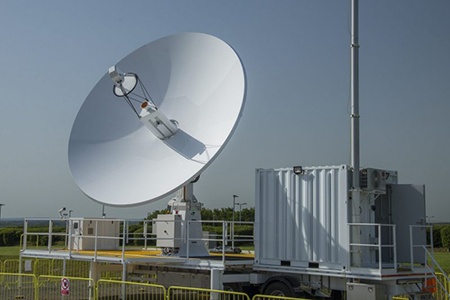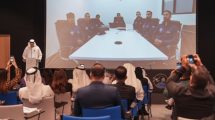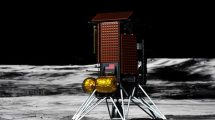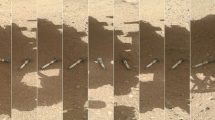
The UK’s Defence Science and Technology Laboratory (Dstl) has acquired its first satellite ground control station to support future space research and operations.
Dstl will test satellite operation software and training civilian and military personnel before the ground control system begins tasking satellites towards the end of 2019.
It is integral to Dstl’s space science and technology programme and will control satellites in low-earth and geosynchronous orbits from its base at Portsdown West.
Commenting on the announcement, Gary Aitkenhead, Chief Executive, Dstl said: “Dstl is building world-class expertise in developing systems for the space environment.
“Creating a ground infrastructure for future Space S&T missions is a key milestone in the continued rapid growth in our Space programme, supporting both Dstl, our colleagues across the MOD, and our other national and international partners.”
Announcing the ground station on the 50th anniversary of the Apollo 11 mission, Dstl said the system would allow the MOD to gain a stronger foothold in space and help protect the UK from threats.
The ground station forms part of a larger Ministry of Defence (MOD) push for more space capabilities.
On Thursday, Secretary of State for Defence Penny Mordaunt announced that the UK would be the first international partner of US Operation Olympic Defender programme to safeguard space systems from enemy attack.
Commenting at the Air and Space Power Conference 2019, Mordaunt said: “China has tested hit-to-kill interceptor missiles increasing deadly debris and threatening every sovereign space enterprise.
“Russia is conducting sophisticated on-orbit activities…developing missile interceptors to threaten satellites and electronic warfare systems to jam satellite signals.”
Mordaunt said the UK is sending eight personnel to the US Combined Space Operations Centre in California and will invest $34m (£28m) in a network of low-orbit satellites called ARTEMIS which will be used to provide aircraft with constant live feeds of the Earth.
The UK is a major player in the satellite industry producing with Surrey Satellite Technology alone making 40% of the world’s small satellites.












Add Comment